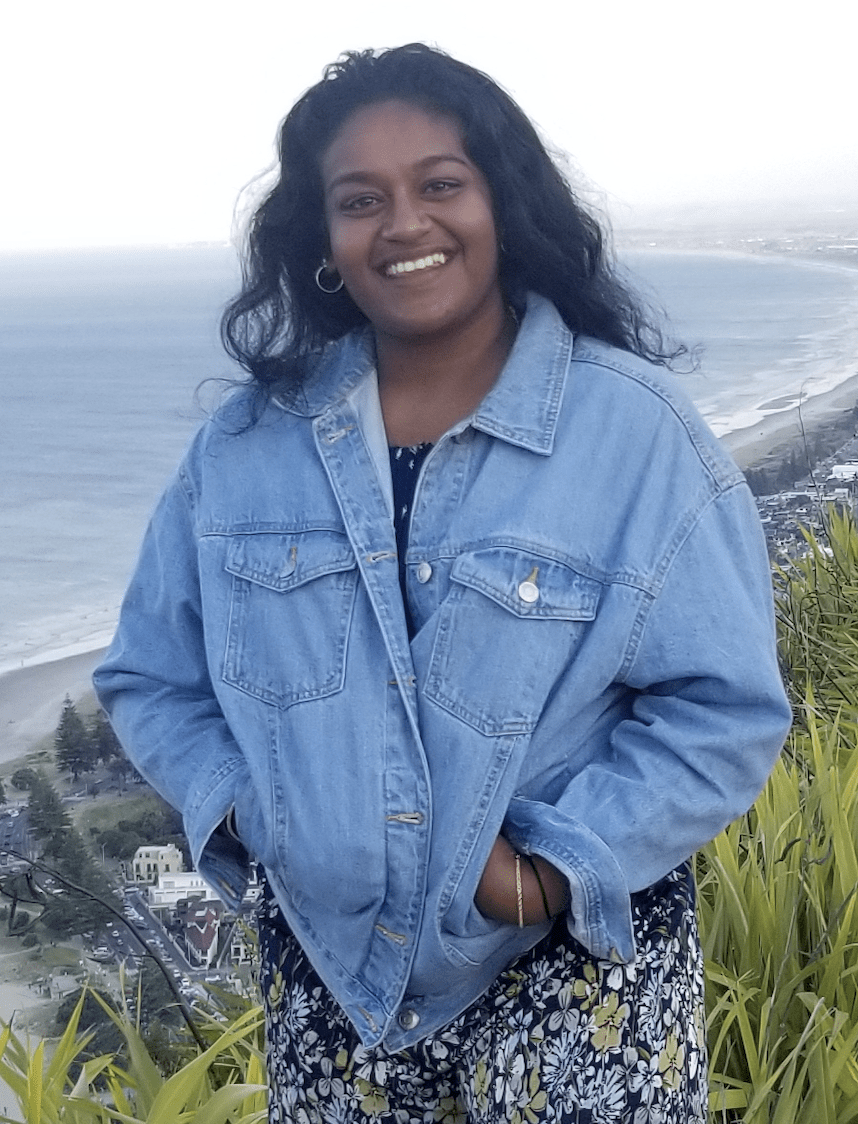Our last blog post for 2022 is written by Nikki Singh. This is poignant piece that captures the complexity in identifying who you identify as and the internal work that is required to figure this out. Ethnic identifiers are often complicated by historical, political and cultural struggles that makes the question, “What ethnic group(s) do you identify with?”, just not that simple to answer. I hope emerging and established researchers who have visible identities are encouraged by Nikki’s piece, to actively explore and express their ethnic identities.
Like the title says, I’m Fiji Indian. I was born and raised in Aotearoa, however I have always held connections to Fiji as the land of my parents and the 4 generations before them. In my 24 years, I have visited Fiji almost 18 times, whereas my trips to India have been nil. Fiji, and the islands, are a large part of my ethnicity and for the majority of my life, I truly wanted to fit into the ‘Pacific category’. Afterall, ethnicity should not be about DNA or blood quantum, but instead about national and cultural tradition, right? Well, all the dictionaries say so when defining ethnicity.
However, tensions can arise between intersections of identity, particularly if the intersection is of two worlds that do not necessarily fit together and being Fiji Indian is one of those tensions. Our people, while solely categorised as ‘Asians’ in Aotearoa, hardly ever self identify with this ethnic label. In most cases, we tend to reject it. Instead, we have strong spiritual, physical, emotional and cultural ties to Fiji, the land of our historical indentureship (and now) the land of our life. Our culture has emerged from Fiji: kava consumption was/is part of our practices, we have integrated Fijian words and tones into our dialect, we have dismantled the India-based caste system, root crops such as cassava and taro are staple in our diets, those born in Fiji have Fijian citizenship… There are so many more examples to show how we are (now) children of the Pacific. Still, being recognised as part of the Pacific community, is a battle, one we often fail.
You may see the term Fiji Indian and think, ‘well, is it not obvious that they are Asian?’. Do they not eat curry, speak some form of Hindi, wear Indian clothes and phenotypically, look like Indians? However for various reasons, I grew up with a strong resistance to being labelled ‘Asian’: I would even go as far to say that it was an aversion.
But was the cause of these feelings? Perhaps it was the result of the stereotypes that I knew of from a very young age of what Asians should be, including the model minority myth? Perhaps it was the constant remarks of speaking ‘weird, broken Hindi’ from my Indian mates, or the constant commentary of not being a ‘real Indian’ even if I did look like one. Perhaps it was the lack of connection to motherland India as I have not being there myself. Or was it the similarity and friendships I had with my Pacific peers, rather than South Asian girls?
Whatever it was, I have never felt at home in the word ‘Asian’, let alone wanted to be titled as one. I didn’t fit, nor did I want to fit into the Asian world. I was something different: Pacific (even if the Pacific world didn’t agree). Because, “ethnicity is not defined as DNA or blood quantum but national and cultural tradition”… and Fiji Indian culture emerged from Pacific ways of being. Looking back now, I recognise the internalised racism I held towards Asians, but back then, that is what I strove to be socially recognised as.
In 2020 came the chance to explore this phenomenon of identity and ethnicity. I completed my BHSc (Honours) and titled my dissertation “Neither Pacific nor Asian”, in order to academically conceptualise being Fiji Indian. I don’t know what I expected to happen, but I hoped that I could finally give voice to the identity I had wrestled with my whole life. It was a chance to prove to the Pacific health world, that we Fiji Indians, also fit in! That we are not solely Asian – a title I kept running from. But in writing that research and exploring my ancestors history and sacrifice, I have finally come to embrace the ‘Asian-ness’ of being Fiji Indian.
I don’t know exactly when it happened or how it happened, but as I pressed submit on my dissertation in late December 2020, the overwhelming feeling of trying to prove myself as a Pacific person, and the internalised racism that I held toward being labelled an ‘Asian’ slowly began to melt. Over the past 2 years, I have significantly been involved in Asian and MELAA (Middle Eastern, Latin American and African) research. In this work, I have witnessed the silent fight that Asians experience in the academic and health world. The fight to be noticed, to be cared for, to be represented, to be researched with empathy and understanding, and the need to dispel myths that Asians are not just a ‘model minority’ or ‘healthy immigrants’, who have no health concerns or wants.
And so I, a Fiji Indian, am also Asian.
From the outside, that sentence might seem obvious. (I look like an Indian, right?) but the journey to get to this place has been monumental. I’ve had to let go of the longing I had for being recognised as solely Pacific, and to realise that the acceptance of the label ‘Asian’ does not equate to disrespect towards my parents and the 4 generations before them, who were born and raised in Fiji. Being Asian does not take away from the emergence of our culture in Fiji. Instead, stepping up as Asian is a new beginning, not an end to my Pacific self. It is an act of honour to my ancestors and their story from India. It is recognising who I could have been without indentureship in our history and it is the pride of having a dual-identity.
Embracing the ‘Asian-ness’ of being Fiji Indian has pushed me to admire the beauty of our intersectional selves, rather than pushing for one identity alone. Whether or not Fiji Indians are Pacific or Asian, or both, we are intersectional and our people have the ability to occupy more than one space at a time, if we choose to. I’ll prefer that over clean cut ethnicity boxes any day.
(p.s, I can’t wait to visit India one day).

About the author
Nikki Singh
nikki.singh@auckland.ac.nz
Nikki has a BHSc (Hons) first class from the University of Auckland. She is currently a first year PhD candidate at the School of Population Health. Her research is focused on chronic illness and ethnic identity for young people.
She loves weightlifting, listening to gospel and worship music, going for long walks (but you will never catch her on a run) and eating chocolate after said walk.
